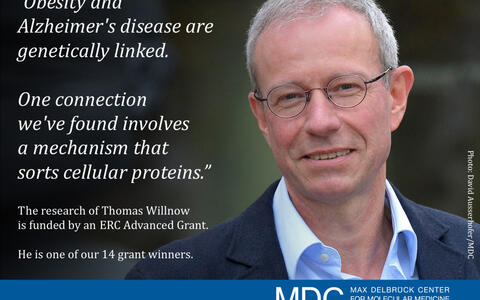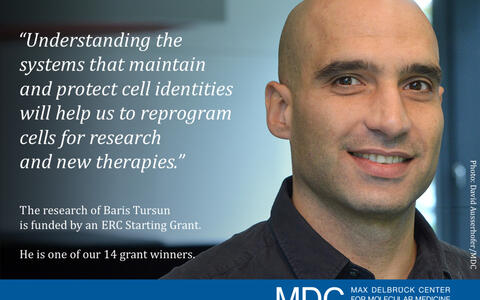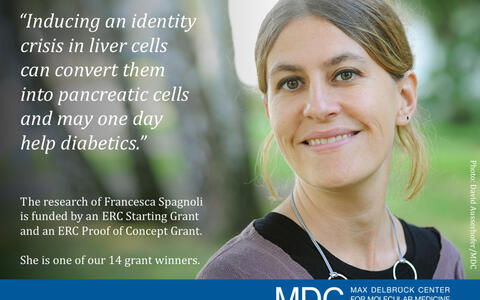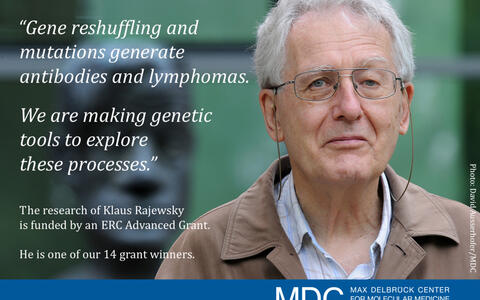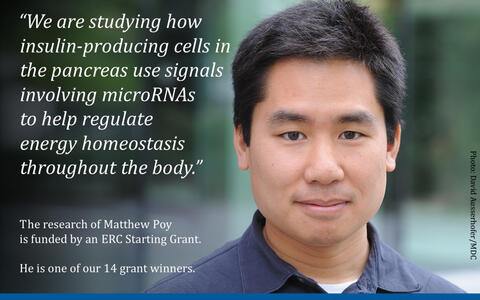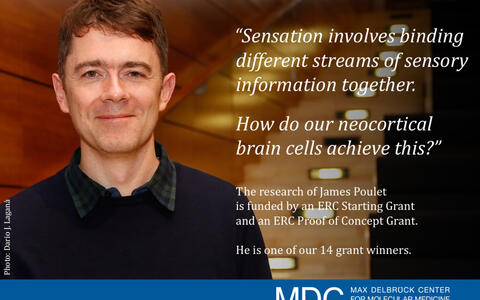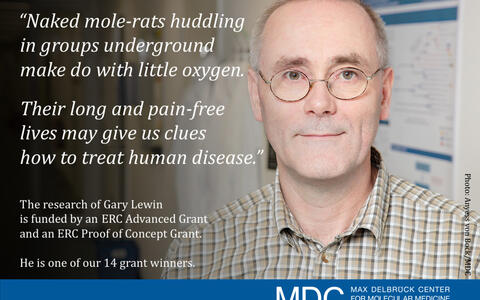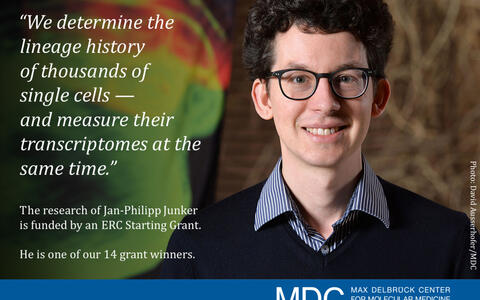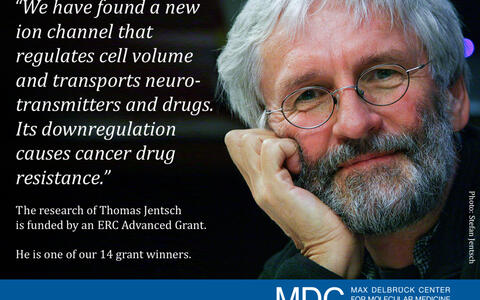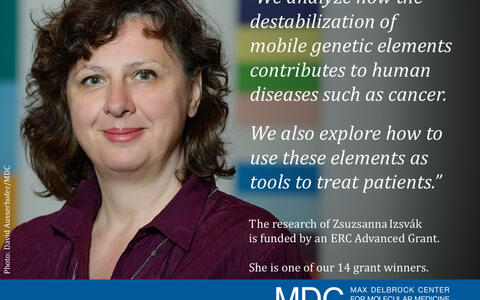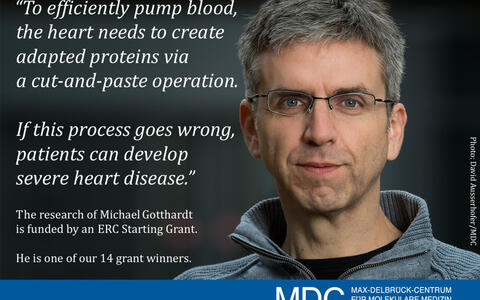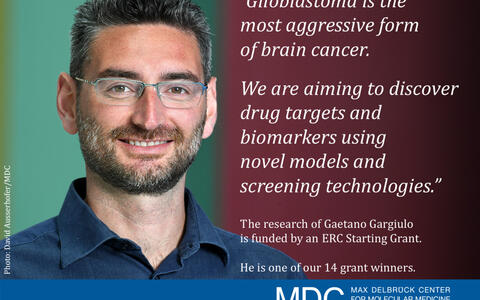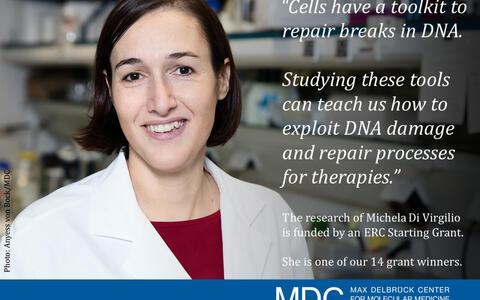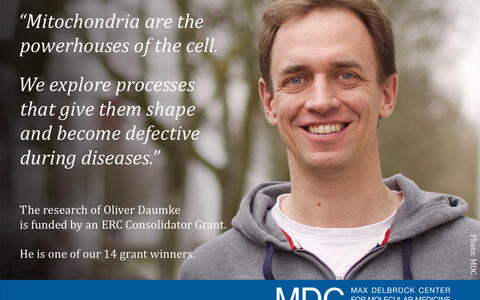Congratulations, ERC!
Thomas Willnow doesn’t miss a beat when asked about the benefits of ERC grants. “Previously, the EU wanted to strengthen networking. The ERC takes an entirely different approach. Here it’s not about consortia, but about a good idea and its implementation,” says the cell biologist. He is one of 14 researchers at the Max Delbrück Center for Molecular Medicine who have been awarded the highly sought-after funding. The MDC thus ranks 17th out of 128 German research institutions.
The selection process is based on a single criterion – scientific excellence – and researchers are not constrained by any thematic or policy priorities. The ERC views the grant recipients as pioneers venturing into uncharted territory. They decide themselves which areas are worth exploring. That was the mission ERC was given when it was set up in 2007. The peer reviewers have remained true to this mission by awarding millions of euros to projects that fall into the category of high-risk/high-gain research.
Thomas Jentsch, for example, used his ERC Advanced Grant to search for an ion channel that plays a vital role in cell survival – a riddle that several research teams had been trying to solve for over 20 years. “This was a very lengthy and costly undertaking with an uncertain outcome. It came with the inherent risk that we might fail or that other teams might make the discovery first,” says Jentsch. But he ultimately succeeded. Gary Lewin is using his ERC Advanced Grant to study the physiology of naked mole rats. With the help of these extreme mammals, he is seeking to gain fundamental insights into human diseases: “This involves quite a bit of lateral thinking and more of a blue-sky approach than usual.”
“Time is a crucial factor when setting up a laboratory”
ERC funding is also open to scientists of any age. In 2010, for example, an ERC grant made it possible for Klaus Rajewsky, despite his advanced age, to return to Germany from Harvard University and continue his research at the Max Delbrück Center. ERC Starting Grants, on the other hand, provide young talented researchers with the resources needed to set up their own laboratory for the first time and do independent work. “Thanks to the ERC grant, we have all the resources we need to move our project forward and devote our time to science,” says MDC cancer researcher Gaetano Gargiulo. He was awarded an ERC Starting Grant in fall 2016. “Time is a crucial factor when setting up a laboratory.”
In the last ten years, the ERC has funded more than 7,000 basic researchers across Europe. Two-thirds of grantees are young researchers, with only two to twelve years of post-PhD experience. An ERC grant provides not only financial freedom, but also visibility in the scientific community. “My research has received attention worldwide, which has led to excellent collaborations,” says Zsuzsanna Izsvák, whose investigation of mobile DNA elements is supported by an ERC Advanced Grant. “This year I’ve been able to file several patent applications. Our invention, the Sleeping Beauty system, is now being tested as a gene therapy vector in clinical trials.”
“Spending cuts averted in 2015 – for now”
The ERC has enhanced the competitiveness of European research, according to a statement from EU-LIFE, an alliance of 13 biomedical research institutes across Europe, to which the MDC also belongs. In 2015 it nevertheless almost fell victim to cost-cutting measures. There had been plans to reduce the Horizon 2020 program’s budget by €2.7 billion, €221 million of which was slated to be cut from the ERC. There was widespread protest, and the spending cuts were averted – for the time being. “We strongly urge policymakers in all EU member states and EU institutions to provide unconditional support for the ERC,” demands EU-LIFE. “This includes increasing the budget in the next framework program (FP9) and strengthening the ERC principles of scientific excellence and independence.”
The topic that Thomas Willnow is tackling with the help of an ERC Advanced Grant highlights just how vital excellent basic research is. “The study of patient groups has shown a direct link between the presence of metabolic disorders and the risk of dementia,” he says. Yet, according to Willnow, the precise details of how blood vessels or the liver or fat tissue, for that matter, interact with the brain are still not well understood. Willnow’s team has been able to demonstrate this link for certain metabolic regulators. “The question is now whether one can use this knowledge to halt neurodegenerative processes via signaling pathways.”


